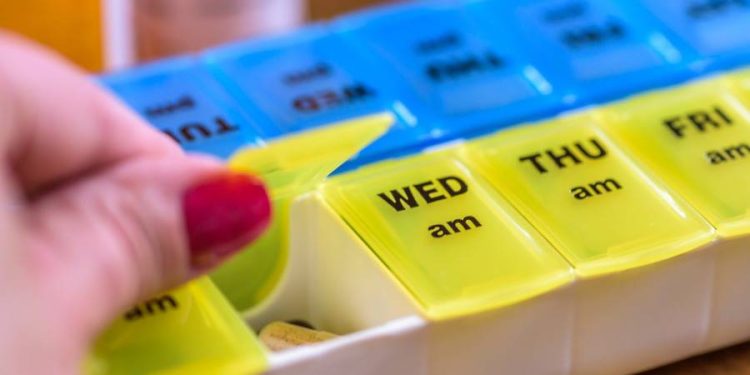Managing medications can often feel overwhelming, especially if you or a loved one are on multiple prescriptions. With the hustle and bustle of everyday life, it’s easy to forget a dose or get confused about the right medications and times to take them. However, proper medication management is crucial for the effectiveness of the treatment and overall health. Nashville, a city known for its rich musical heritage, also boasts a robust healthcare system, including services like compounding pharmacies. These specialized pharmacies offer personalized medication solutions tailored to individual needs.
In this article, we’ll explore essential tips for effectively managing medications, ensuring that you or your loved ones safely and efficiently stay on track with your healthcare regimen.
Table of Contents
Create a Medication List
A comprehensive medication list is your first line of defense in managing your prescriptions effectively. This list should be detailed and include not only the name of each medication but also its dosage, the time it needs to be taken, and the specific conditions it’s treating. It’s also helpful to note down any allergic reactions or side effects you’ve experienced with certain medications. Keep a printed copy of this list in your wallet and another at home so it’s readily accessible during doctor visits or emergencies.
Utilize Compounding Pharmacies
Compounding pharmacies play a unique role in personalized medication management. These pharmacies prepare medications tailored to the specific needs of a patient, which can be especially beneficial for those with allergies to certain ingredients or those who require unique dosage forms. For example, they can prepare a liquid form of a medication typically available only in pill form for a patient who has difficulty swallowing pills. If you require a compounding pharmacy Nashville TN offers great options like Riverside Village Pharmacy. Utilizing these specialized services can significantly enhance the effectiveness and ease of your medication routine.
Understand Your Medications
Understanding your medications goes beyond just knowing their names and dosages. It involves comprehending their purpose, how they work in your body, potential side effects, and what to do if you miss a dose. Educate yourself by reading the information leaflets that come with your medications, and don’t hesitate to ask your healthcare provider or pharmacist questions. A deeper understanding of your medications can lead to better adherence to your regimen and help you recognize if something isn’t working as it should.
Use Pill Organizers
Utilizing pill organizers can significantly simplify your medication routine, especially if you’re managing multiple medications. These organizers are available in various formats, ranging from daily to weekly setups, with compartments for different times of the day. This visual aid not only helps in keeping track of whether you’ve taken a specific dose but also reduces the chances of double-dosing. For those who travel often, consider a portable organizer that’s easy to carry.
Set Reminders
In our busy lives, it’s easy to forget a dose. Setting reminders can be a helpful way to ensure you take your medications at the right time each day. You can use alarm clocks, smartphone apps, or even simple sticky notes in visible places. Associating medication times with daily routines, like mealtimes or bedtime, can also be an effective strategy. For elderly patients or those with cognitive challenges, caregivers might consider automated medication dispensers that emit alerts when it’s time for a dose.
Regularly Consult Your Healthcare Provider
Regular consultations with your healthcare provider are crucial for effective medication management. These check-ins allow you to discuss the efficacy of your medications, any side effects you’re experiencing, and any changes in your health that might necessitate adjustments to your regimen. Be open and honest during these discussions – the more information your provider has, the better they can tailor your treatment. Additionally, this is a great opportunity to verify that you’re taking your medications correctly and to ask for refills.
Be Aware of Interactions
It’s crucial to be aware of how different medications may interact with each other, including over-the-counter drugs, supplements, and even certain foods and beverages. Some interactions can reduce the effectiveness of a medication, while others can increase the risk of severe side effects. Always inform your healthcare provider or pharmacist about all the medications and supplements you are taking so they can guide you on potential interactions. Additionally, be cautious when starting any new medication or supplement and verify its compatibility with your existing regimen.
Store Medications Properly
Proper storage of medications is essential for maintaining their efficacy. Most medications are required to be kept in a dry place at a low temperature. They should also be away from direct sunlight and moisture. Always check the storage instructions on the medication label or consult with your pharmacist. Improper storage can lead to reduced effectiveness or even spoilage of the medication. Additionally, keep medications out of reach of children and pets to prevent accidental ingestion.
Dispose of Medications Safely
Disposing of expired or unused medications is important for both safety and environmental reasons. Do not flush medications down the toilet or throw them in the trash where they can be accessed by others or harm the environment. Many pharmacies offer safe medication disposal services, or you can check for local community drug take-back programs. Proper disposal ensures that medications do not end up in the wrong hands or harm the ecosystem.
Educate Family Members
If you live with family or have a caregiver, it’s important to educate them about your medication regimen. This includes informing them about the dosages, timing, and purpose of each medication. In cases of emergency or if you are unable to manage your medications yourself, having someone else who is knowledgeable about your regimen can be incredibly helpful. This also includes educating them about what to do in case of missed doses or side effects.
Review Your Medication Regimen Annually
Your health needs can change over time, and so can your medication requirements. It’s advisable to have an annual review of your medication regimen with your healthcare provider. This review can identify medications that are no longer necessary or can be replaced with more effective options. It’s also an opportunity to discuss any concerns or side effects you’ve experienced over the year.
Conclusion
Managing medications effectively is a key component of maintaining good health, especially for those with chronic conditions or those taking multiple medications. By staying organized, understanding your medications, and storing your medications properly, you can ensure that your medication regimen supports your health goals. Remember, communication with your healthcare provider and pharmacist is vital in navigating any concerns or changes in your medication needs. With these tips, you can confidently manage your medications and focus on enjoying a healthy life.


 Home
Home









